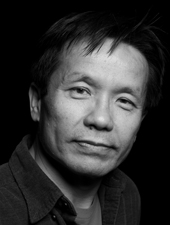Ge, X. C., Hannan, F., Xie, Z. L., Feng, C. H., Tully, T., Zhou, H. M., Xie, Z. P., Zhong, Y. (July 2004) Notch signaling in Drosophila long-term memory formation. Proceedings of the National Academy of Sciences of the United States of America, 101 (27). pp. 10172-10176. ISSN 0027-8424
Preview |
PDF (Paper)
Tully and Zhong PNAS 2004.pdf - Published Version Download (338kB) | Preview |
Abstract
Notch (N) is a cell surface receptor that mediates an evolutionarily ancient signaling pathway to control an extraordinarily broad spectrum of cell fates and developmental processes. To gain insights into the functions of N signaling in the adult brain, we examined the involvement of N in Drosophila olfactory learning and memory. Long-term memory (LTM) was disrupted by blocking N signaling in conditional mutants or by acutely induced expression of a dominant-negative N transgene. In contrast, neither learning nor early memory were affected. Furthermore, induced overexpression of a wild-type (normal) N transgene specifically enhanced LTM formation. These experiments demonstrate that N signaling contributes to LTM formation in the Drosophila adult brain.
| Item Type: | Paper |
|---|---|
| Uncontrolled Keywords: | ALZHEIMERS-DISEASE Alzheimer's disease BINDING PROTEIN protein binding CELL FATES cell fates MELANOGASTER Melanogaster COMPLEX Complex MICE SPECIFICATION specification SUPPRESSOR suppressor REPRESSION EXPRESSION |
| Subjects: | organism description > animal > insect > Drosophila organism description > animal behavior > olfactory |
| CSHL Authors: | |
| Communities: | CSHL labs > Tully lab CSHL labs > Zhong lab |
| Depositing User: | CSHL Librarian |
| Date: | July 2004 |
| Date Deposited: | 03 Feb 2012 16:45 |
| Last Modified: | 11 Jan 2018 20:49 |
| PMCID: | PMC454384 |
| Related URLs: | |
| URI: | https://repository.cshl.edu/id/eprint/22372 |
Actions (login required)
 |
Administrator's edit/view item |




